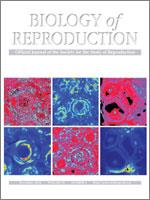Inflammation is thought to play a critical role in the pathogenesis of placentation disorders such as recurrent miscarriages, growth restriction, and preeclampsia. Recently, neutrophil extracellular traps (NETs) have emerged as a potential mechanism for promoting inflammation in both infectious and noninfectious disorders. To investigate a pathogenic role for NETs in placentation disorders, we studied a model of antiangiogenic factor-mediated pregnancy loss in wild-type (WT) mice and in mice deficient in peptidylarginine deiminase 4 (Padi4−/−) that are unable to form NETs. Overexpression of soluble fms-like tyrosine kinase 1 (sFlt-1), an antiangiogenic protein that is pathogenically linked with abnormal placentation disorders during early gestation, resulted in pregnancy loss and large accumulation of neutrophils and NETs in WT placentas. Interestingly, sFlt-1 overexpression in Padi4−/− mice resulted in dramatically lower inflammatory and thrombotic response, which was accompanied by significant reduction in pregnancy losses. Inhibition of NETosis may serve as a novel target in disorders of impaired placentation.
How to translate text using browser tools
9 November 2016
PAD4 Deficiency Decreases Inflammation and Susceptibility to Pregnancy Loss in a Mouse Model
Luise Erpenbeck,
Chanchal sur Chowdhury,
Zsuzsanna K. Zsengellér,
Maureen Gallant,
Suzanne D. Burke,
Stephen Cifuni,
Sinuhe Hahn,
Denisa D. Wagner,
S. Ananth Karumanchi
ACCESS THE FULL ARTICLE

Biology of Reproduction
Vol. 95 • No. 6
December 2016
Vol. 95 • No. 6
December 2016
angiogenesis
Inflammation
NETs
placenta
preeclampsia




